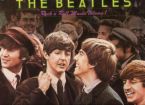EPIPHANY Part II
During the sermon that morning, the minister brought up this concept of identity and self worth. The point he was making, based on this section of Psalms, is that God's love for his children is based on knowledge of one as a person, as a creation of His, not on what kind of success you have had in your life. My mind wandered off his words a little bit, to wrap my mind around "identity" and "self worth", with the question being, "what makes a person worth loving?", not in God's terms, but in ours.
I didn't feel like I needed to pose at myself the question the minister posed to the congregation, which was "who are you?", the subject of identity. I know who I am. Perhaps more than most people, as my friend Rhonda suggested last week. Identity and self understanding has always been important to me, even mentioned in previous entries. Determining self worth has been a hard one for me, though. It's closely tied to related words, such as "self esteem" and "self image", things I've struggled with in the past...or have I...that's sometimes the question. From a historical sense, I know I have sold myself short on big occasions due to problems in this area, some residual effects of childhood wounds and a failure to sort of understand what to value in myself enough to raise the price on. I struggled with that walking into this failed marriage, which is what made it so hard to leave.
I think about that now, as the minister is talking. I remember something that affected me greatly last year, words that proved the death knell of the marriage, words that couldn't be taken back, things that directly indicated that the failure of my husband to love me was my fault, for not being worth loving. I knew he was wrong, at the time, because...well, everyone is worth loving. Not just because we are God's children, but because we are human. Humans have a need for love, a need for attachments, and truly everyone in them has something worth loving them for.
On the way home from the service, I was talking to my son about both the message of the sermon, and that night he witnessed his father saying these terrible things. I wanted him to understand what the minister was talking about, how God defines our worthiness of love, and how it parallels the way I feel about him. Truly, by the time a child is brought into the world, love has already been developed without the child having to do or be anything for it but themselves. Every little expression of personality, character traits, the positives and negatives and everything in between that makes a person who they are, simply the knowledge of who they are is part of that love. It should have been part of the language between husband and wife, but it wasn't what was spoken in our house, and I wanted my son to understand that, too, so that he could understand the choice I had to make. Surely most children don't want to see their parents split up, but I want him to grow up knowing it was a choice I made to live a life more worth living. I wanted him to know I was walking away to give myself the chance to live a life loved.
The night that time bomb exploded, I went to a friend's house with the children. I talked to her about what he had said, and she told me he was wrong, not just to say that (especially in front of my children), but to think that. "I love you," she said, "because you are a good person who genuinely tries to do the right thing."
Is that what a person has to be to be worth loving? I had spent a lot of time after that night wondering. I asked my close friends why I was worth loving, asked that husband himself to take back those words by giving me reasons. Everyone had different answers, because there are different reasons why each person placed value in me. Jen kept telling me, "it doesn't matter what I say, though, you are going to have to figure out your own reasons why you are worth loving. This is just what I see. You have to see it yourself to believe it." It's not that I questioned it. I always knew he was wrong, but for some reason it just kept hurting. That feeling went away some months ago, though, so I became healed, whether it was through acceptance or through the virtue of real love. I hadn't thought about this in some months, what it was that made me worth loving, but now I rolled it around a little.
I wondered, what is it that people think about themselves that make them think they are worth loving? What are those qualities we see in others that makes us want to emotionally invest in them? Among many other questions, I posed this one to my son, whose ten year old answer astounded me with its maturity, and the way it matched my other friend's idea, and even what the minister was saying, although I doubt my son was actually listening to him when he spoke these words.
"What makes a person worth loving," my son said, "is being good to others. Helping other people, being nice to other people, treating other people well....that's what makes a person worth being loved."
I looked for a little while online, curious as to what other people thought made them worth loving, or made others worth it to them. I looked at personal ads, thinking that this might be a place where you could see what other people, looking for love, used to describe themselves as being someone worth it. "Fun loving" was the most common term used in the women-seeking-men ads. "Trustworthy". I started to wonder if this was truly what women thought were the qualities that made them deserving of love,or if it was based on some idea that this is what men these days are seeking. I wanted to dig deeper into this concept, but got distracted by turning the question on its head, wondering, "is love worth it?" After all, in many experiences of life around me, I see it fade and change and hurt and disappoint. Is it worth all you have to suffer as a result of its potential consequences?
I was still thinking about that when my sons and I headed to the cemetery that afternoon. We were on the way to replace a geocache I had hidden by the graves of two girls who touched my heart. I didn't know these girls, but their headstones made me sad and caused me to reflect on the value of the life I share with my own children, of the love we hold for our children in our hearts.
We paused for while on a shady bench to wait out a family visiting a new grave nearby, the grave of yet another girl who died way too young. I watched as the family each took turns solemnly approaching the fresh headstone, spending time in their mind remembering, speaking to her, telling her how much she meant to them. My heart bled for them, with the imagining of how hard that must be. We waited near another new headstone, that of a young man in his prime. Fresh flowers lay next to his headstone, one with a note whose words had bled in the recent rains, but were still legible, a testament to how much he was missed and how special he had been in the life of the person who left this for him.
Finally, I made my way over to the area I was seeking, noting the flowers and balloons left for the little girl who recently joined the others. I replaced my geocache, then made a nod to the little girls lost. I opened up the picture on the older girl's headstone, again struck mute with her beauty, and thinking about her life,which I had read about on a website tribute to her following her early death, at age 20, by the hands of a drunk driver.
Then I gathered up my children and kissed them. I thought about how life is so short, how time might stop at any minute, how our time on earth is so fleeting, and how precious it is. I thought about the love that family had for the little girl that they now would miss forever, and how it is that, those things, that make love worth living for.
That make love worth leaving for.

























